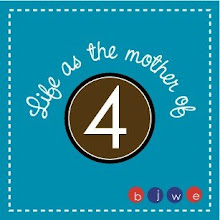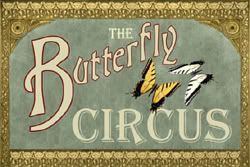What constitutes identity? Naturally one’s personal identity is influence by one’s racial, ethnic, religious, and national background. It is certainly influenced by marital status, educational background, occupation, socio-economic status, health, appearance or by having a particular interest or talent in sports, arts, music and so on; if a disability exists obviously it can have a tremendous effect on how one views oneself and how the world views that individual.
I often use autism as an adjective to describe my son’s behavior because to anyone who is familiar with autism that gives that person a context for understanding a lot of his behavior. They get it. If I mention self-selection in reference to food choices or stimming that person doesn’t require lengthy explanations because they understand how those behaviors look in many people with ASD.
Sometimes AUTISM seems to be the overwhelming characteristic William possesses. Certainly I can understand how someone who doesn’t know him would consider it to be his identity. But anyone who knows many people on the spectrum knows that there are as many differences between people on the spectrum as there are between people who are neuro-typical. While people with AUTISM have similarities they are not identical.
A person’s identity is tied up in what that person and what society deems important and differentiating. In the US Spain
In the US
People with ASD who are higher functioning have occupations, more varied interests, political affiliations, etc. things that society deems identifiers. People who are lower functioning have fewer interests, are less likely to have jobs, have more maladaptive behaviors that separate them from society and less interaction with society in general. And thus society views their identity as autistic. As William is lower functioning it’s understandable why society views his identity as autistic. And perhaps it’s appropriate since aside from his physical appearance it is his most recognizable difference.
Autism as identity is, like any other identity, a social construct. I believe that everyone has identity separate from any physical or mental disability. Separate in fact from any racial or ethnic background. Separate from any status we have earned or been born into. I believe we all existed as a spirit or intelligence prior to being born. I believe that all our spirits had personality, thoughts and beliefs than influences our actions and life. I believe that every person has value because they exist. No differences, no disability effects in any way the intrinsic value of an individual. I believe we are all children of God, all equally valued and loved.
This post started as a diatribe against viewing AUTISM as the identity of an individual. But I realized that identity is just a construct made up of pieces of what an individual or society deems important or differentiating. Autism separates one from the group -- through personal choice, ability to interact with the group and through the group’s unwillingness to interact with the individual. Autism is not the most important identifier but it is important. And thus it is understandable that society and an individual can view autism as a defining part of identity.







5 comments:
Interesting post. Lots to consider. I'm not sure anybody in using autistic as an identifier is trying to suggest that autism is the total of an individual, nor one's entire identity. It's an adjective, like blonde, like black, like thin, like short, like round, or like fluffy. It perhaps gives more information to those who have someone with autism in their lives than those other descriptors do.
And if an autistic person chooses to adopt autism as a identity, to focus on the positives and the negatives, to ascribe autism to the differences in their neurological wiring, to take back what has been used only to signal deficits, well, it's no different than other discriminated groups have done.
What I guess we should work on not doing is forcing our labels onto other, but allowing others to identify themselves and to then respect that. :-)
Absolutely. Sometimes I think that people outside of the community just view Will as autistic and while that certainly is a big part of who he is that is not all of him. I think society gets lazy, scared, intimidated and fearful of offending and doesn't interact with the disabled. They put them into a "box" rather than getting to know the person and how they identify themselves. I think that autistic is just as valid a identifier as anything else.
Interesting post. I am an autistic adult, and often use autistic as an adjective or even a noun, to point out that it is a significant part of my identity. It is not allof my identitity, of course, but it defines me to a great degree.
Funny..my son with autism is so low functioning he does not talk or even wipe his own bottom. I have never thought of his identity. But my identify...I am Rebecca Autism. People saw me coming and they saw autism, they heard autism, they feared autism and all it's intrusions.
hehehe, I like that. I think that for family members the disability becomes part of their identity too.
Post a Comment